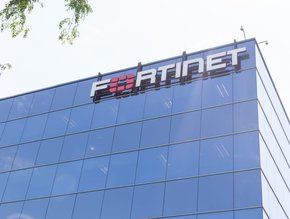Tips to avoid cyber data breaches & ensure digital security

Now more than ever, it is important for organisations to ensure that their digital platforms are secure. With large organisations like the NHS having experienced its largest data breach on record, continued ransomware and phishing hacks on global businesses speaks to wider concerns about increased cyber threats and the warfare on online security systems.
There are plenty of ways to avoid data breaches in 2023, from implementing two-factor authentication, to conducting regular security audits and pen testing, measures across all industries can be taken to reduce risk and ensure digital platforms are safe.
Protecting valuable data as a must for businesses
Data breaches can work to damage an organisation's reputation. When customer data is compromised, the company's ability to protect its users’ sensitive information is doubted. An example of this is when the Japanese government criticised Fujitsu for its cloud security failings for data leaks that impacted a minimum of 1700 companies and government agencies, as well as taking eight months to discover the issue.
Not only do robust online security systems protect personal privacy, but they also prevent financial losses, safeguard intellectual property and help businesses to comply with legal obligations.
There are now plenty of different ways to prevent data breaches. The use of Biometric technology in particular has become increasingly popular in recent years, especially with the advent of two-factor authentication for online banking. The global biometric market's revenue reached US$43bn in 2022 and is projected to hit US$83bn by 2027.
Jose San Miguel, Managing Director at white-label ticketing platform Nuweb Group offered some valuable insight into cyber protection, stating: “Organisations must invest in robust cybersecurity measures, implement best practices, and stay vigilant to counter the evolving threats in the digital landscape.
“With the rapid adoption of cloud, remote work, SaaS apps, and distributed systems, the security landscape has expanded significantly. Every new system, network, and application creates potential vulnerabilities for attackers to exploit.
“From DDos attacks to credential stuffing, these threats highlight the need for companies to implement multi-layered security measures, conduct regular security assessments, and stay informed about the latest cybersecurity trends and best practices.”
How do organisations prevent data breaches in 2023?
Implement 2-factor authentication (2FA):
Implementing 2-factor authentication is an effective way to provide platforms with an additional layer of security beyond just a username and password combination. By requiring multiple factors of authentication (ie. biometric data), the likelihood of unauthorised access significantly reduces. This means that even if the initial security factor is bypassed, the attacker would still have other authentication factors to deal with.
Regularly update and patch systems:
It is advisable that businesses should stay up-to-date with the latest security patches and updates relevant to their operating systems, software and applications. Often, many of these updates tend to identify and address vulnerabilities that can be exploited by attackers.
Updates and patches can also fix software bugs and improve system stability, enabling organisations to ensure their systems are running efficiently and providing better user experience.
Conduct regular security audits and penetration testing:
Regular security audits and pen testing helps to identify system vulnerabilities and weaknesses, as well as applications and network infrastructure. This process involves actively testing security measures to discover potential weaknesses before they are exploited, before addressing the issues.
Encrypt sensitive data:
Implementing robust encryption mechanisms to protect sensitive data makes it more challenging for perpetrators to access company information. Encryption ensures that sensitive data remains confidential and accessible only to authorised parties.
It also transforms data into an unreadable format that can only be decrypted with the right decryption key. This ultimately protects against unauthorised access, whether it's due to data breaches, insider threats, or physical theft.
Employee education and awareness:
It is also advisable for businesses to train employees on best practices for data security and raise awareness about potential threats such as phishing attacks. A recent report by Acronis, a global leader in cyber protection, confirmed that in the first half of 2023 alone, the number of email-based phishing attacks has surged 464% in comparison to 2022.
Businesses are advised to encourage strong password practices, as well as helping their staff to recognise suspicious emails or links. The importance of safeguarding sensitive information and private data is paramount to ensure organisations are best protected.
******
For more insights into the world of Technology - check out the latest edition of Cyber Magazine and be sure to follow us on LinkedIn & Twitter.
Other magazines that may be of interest - AI Magazine | Technology Magazine
Please also check out our upcoming event - Sustainability LIVE in London on September 6-7 2023.
******
BizClik is a global provider of B2B digital media platforms that cover Executive Communities for CEOs, CFOs, CMOs, Sustainability Leaders, Procurement & Supply Chain Leaders, Technology & AI Leaders, Cyber Leaders, FinTech & InsurTech Leaders as well as covering industries such as Manufacturing, Mining, Energy, EV, Construction, Healthcare + Food & Drink.
BizClik – based in London, Dubai, and New York – offers services such as Content Creation, Advertising & Sponsorship Solutions, Webinars & Events.
- World Password Day: 5 Best Practices To Protect Your DataOperational Security
- Tech & AI LIVE: Key Events that are Vital for CybersecurityTechnology & AI
- Rapid7 predictions for the world of cyber in 2024Cyber Security
- Secure 2024: AI’s impact on cybersecurity with Integrity360Technology & AI






